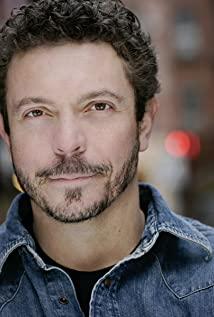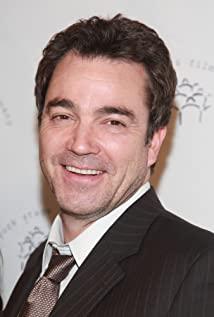After watching the first season of "True Detective" twice in half a year, after reminiscing over and over again, after doing some homework, I skipped the second season and watched the third season directly.
It took eight hours to read it, and I can't say it was a complete surprise. It should be said that the doubts, frights, and even horrors of the first seven episodes, plus the sudden realization in the last eighth episode were mixed with a little disappointment and healing... This is the complicated feeling that the third season of "True Detective" brought me.
The detective partners this time are Hays and Roland. To be honest, even watching Season 3 seriously, the images of Rust and Marty kept popping up in my head. In the third season, although the overall atmosphere is also dull and depressing, the themes involved seem to be constantly expanding the possibility of extension: racial discrimination, pedophilia, political and business collusion, cult power, war memory, post-war psychological post-traumatic sequelae , homosexuality, dementia, family disputes... Because the situation laid out before is too broad, plus the experience of the first season, until the final truth is revealed, the above keywords are all circling in my mind.
In particular, I also experienced a lot of panic in the middle: when the elderly Hays was reading his wife Amelia's book, Amelia appeared under the faint overhead light and said some words that implied that Hays was unbearable, and the picture focused on Hays, Amelia was like a ghost 's image continued to exude terrifying charm in the virtual focus - this scene made my scalp tingle for a long time. Therefore, my speculation is constantly changing, and I always feel that the director has a big move that will definitely shock the audience at the end.
What's more, the director's three-line narration (young in the 80s, middle-aged in the 90s, old in 2015) adds to the readability and suspense of the story. The one that left a deep impression was the final concentration. The old red real detective was driving on the road. The camera shot the elderly CP from the right side of the front of the car, and then moved from the back to the front. With the cover of the Hays seat back, it switched to the middle-aged real detective. Then switch to a young detective, and finally back to old age. This scene is not only the ingenuity of technology, but also from the switching and circulation of the shots, I feel that they practice the word "true" of true detectives with their lives - although the drawbacks of classical detectives are obvious and cannot give the viewer a sense of "cool" : Suddenly a person dies, suddenly a case is solved - but this uneasy feeling of powerlessness attracts people to explore.
That's right, regardless of the case itself, you can chew out different flavors.
(one)
Many scenes gave Hays and Amelia their love affair. Hays' experience and even pain may have become his initial attraction to Amelia, but it was also the marks and scars left by these experiences that made the marriage a few years later. Precarious: His lack of self-confidence, lack of self-knowledge, and ineffective communication with his wife have built a wall between him and Amelia.
(two)
Spiritual growth of Hays self. When he had an emotional communication with Amelia in the 1990s, he revealed the real, very kind and sad reason why Hays joined the army: if he died, his mother would receive a $10,000 pension. Hays, who was a scout, became a detective. When Roland quarreled with him, he said that half of the cases they had handled were unsolved, so why couldn't he let this one go alone? But the case, spanning decades, was so brutally involved in Hays' upbringing that it even constituted his fragmented and highly imperfect career. It can be said that Hays's investigation process, except for the choice of CP Roland, is always limited: in the 1980s, he had a leader who desperately needed the resolution rate and wanted to rocket up; in the 1990s, the real detective CP had to kill Harris by mistake, and Hays was arrested for this Hoyte threatened that the truth was at hand, and had to give up; in 2015, when the case was "digged" again, Hays had to follow the physiological state of diapers and amnesia, relying on writing and recording to maintain memory. Hays' life was so tumultuous, and the truth came out of countless misses and regrets. At the end of the story, he came to Julie, whom he had been looking for all his life, but he forgot his purpose.
(three)
Sunset Red Really Detects CP Love. Hays had a lot of ups and downs in his life, but he was lucky to meet Roland as his partner. In the United States in the 1980s, the situation of black people was still very embarrassing, and Hays' self-cognition also appeared to be sensitive in the big environment. Roland would give him comfort: "I will shoot regardless of white or black; if it is black, I will shoot. I will hesitate"; he tried to persuade Hays to sign a statement to keep his identity as a detective; he called Hays back from his clerical post to solve the case again; old and alone, when faced with Hays's unbelievable appeal, he answered "NO" decisively, But not firmly agreed to Hays. Seeing the speculation about Roland's homosexuality on the Internet, I think it is reasonable, but for this CP love, it does not need to be limited to love, it is more like a love of knowing - Roland appreciates Hays. Just like the backs of a tall and a short pair left behind after they interviewed the maids of the Hoyte family - staggering, but leaning against each other.
(Four)
The two men with the most bitterness and memory in the side descriptions in the play, Tom and the Indians. When Tom appeared in the first episode, he was a slightly rude and responsible father. After such a disaster, Tom slowly went from collapse to self-liberation, until Julie called again, and Tom fell into madness again. Especially when the truth is revealed, the aftertaste of Tom's life is even more tragic: the death and loss of his children are inseparable from his wife; Lucy knew the whole story but left Tom immersed in unknowable pain; when he died, Tom He also suffered the humiliation of being puzzled and suspected of Julie's call. Although Tom is suspected of being a closet, there is no doubt about his love for his children.
From the Indians, we can see the destruction of people by war and the destruction of people by collective unconscious violence. The war did not take the life of the Indians, but took his soul - those traumatic marks made him unable to control himself, and the divorce caused him to lose the wife and a pair of children he most wanted to have. Being a scavenger, the Indians may still be able to live like weeds; but since the Purcell family accident, the town has been in a state of turmoil, and people have hated his occasional closeness to children. But when I saw hordes of men driving to drive him out and about to come to his house to give him some color, when I saw them rolling in, what I saw was not justice, but in the name of justice The act of suppressing and excluding dissidents is a strangulation of independent individuals and "non-me races" from a seemingly bright position. The Indians seek quick death after revenge, which is a particularly depressing and tragic scene in the play.
Sorting out these perspectives, characters, and plots are all worthy of the third season of "True Detective". However, in addition to the repeated weighing and frequent switching of perspectives (in fact, the excessive switching later has some impact on the viewing experience), the appetite has been hanged very high, but the explanation of the eighth episode is very unsatisfying. , also can't match the ups and downs in front and the ubiquitous horror music.
View more about The Great War and Modern Memory reviews











